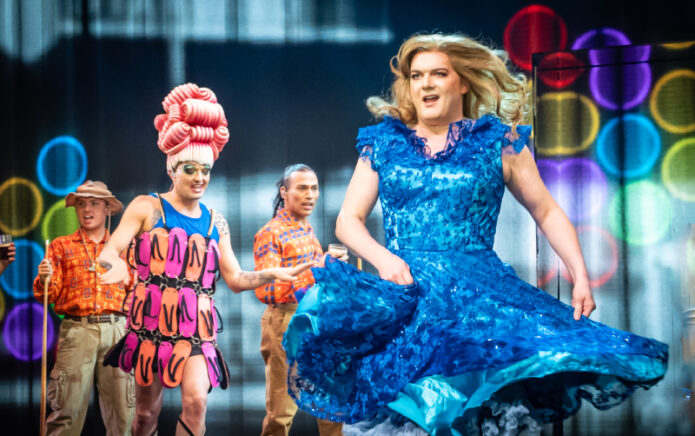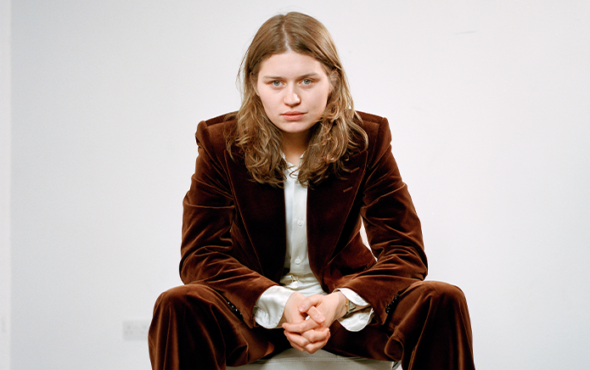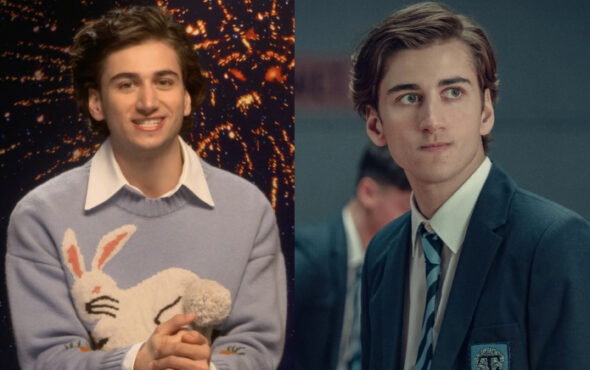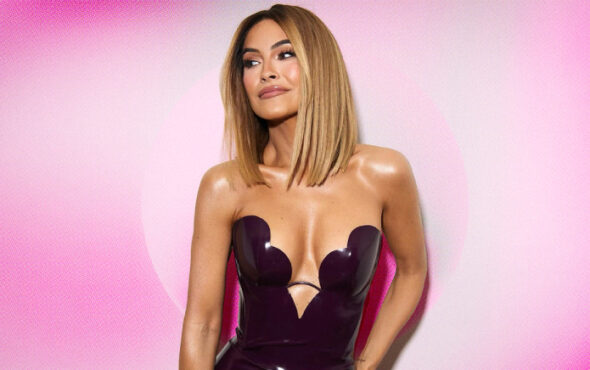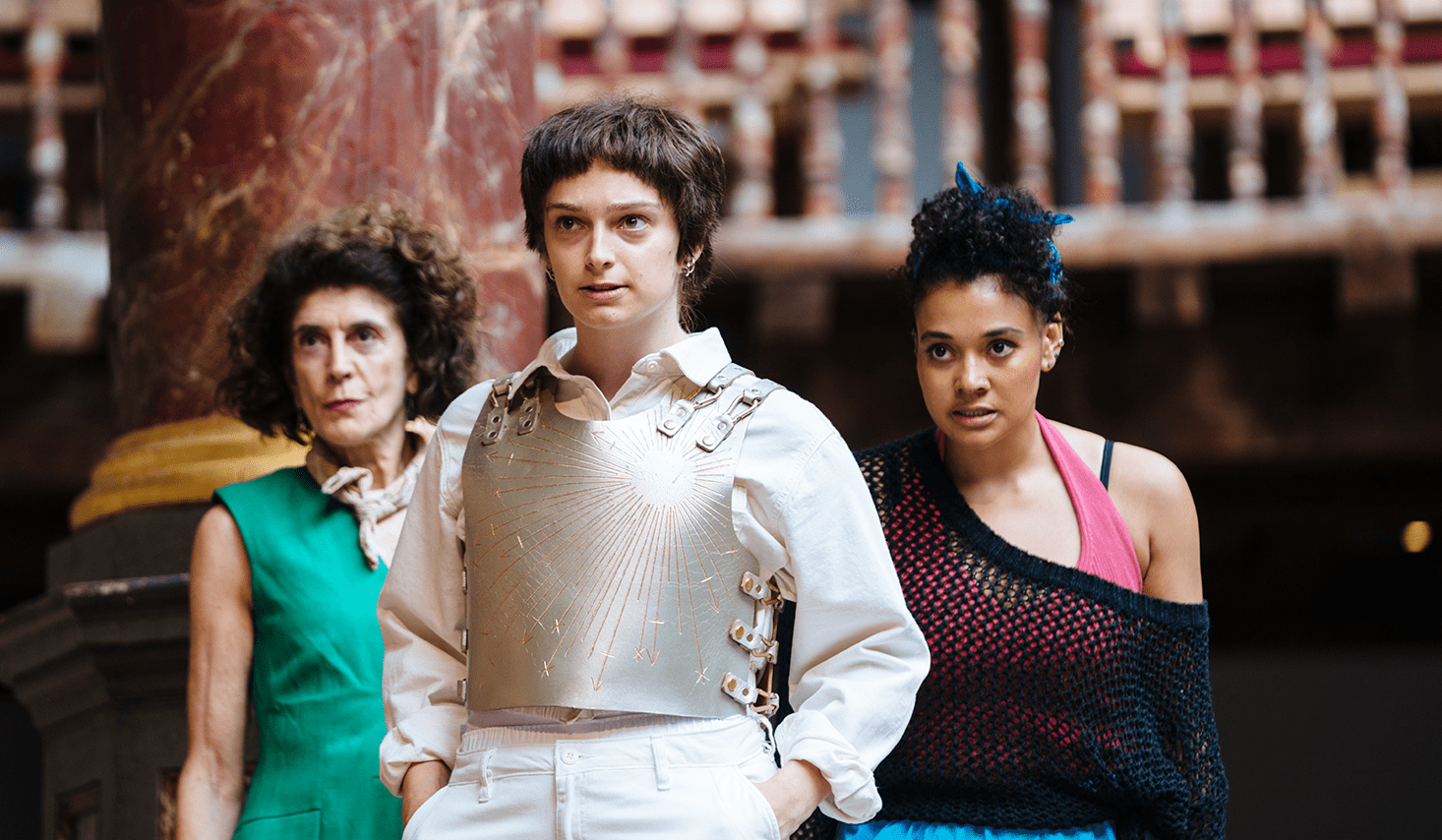
I, Joan doesn’t just mark the Globe’s first foray into non-binary storytelling, but the acting debut of Isobel Thom, who plays the show’s namesake.
Written by non-binary writer Charlie Josephine, the play tells the story of Joan of Arc, the iconic French peasant turned military leader who heard the voices of God and guided France during the country’s Hundred Years’ War in the 15th century.
But in Josephine’s play, Joan’s history is like nothing we’ve seen before as they grapple with their identity through a modern lens of queer and non-binary terminology. Making their case for Joan’s queerness, Thom and Josephine have brought to life the queering of an historical icon like never before – all on the stage of Britain’s most iconic theatre.
GAY TIMES caught up with Thom to discuss the role, how it impacted their own non-binary identity and why this is a story for the history books.
What is I, Joan about?
It’s about a lot of things. But fundamentally, I think it’s about love. And it’s about bravery, and owning your identity.
Why is Joan a queer figure in your eyes?
I think they’re someone that was not ever afraid to be themselves, and was literally prepared to die for that. In a world that was telling them that they couldn’t be what they wanted to be. And I think that that is a struggle that all queer people can relate to, and identify with, in some way, even though the circumstances are different. Like, that’s a feeling that everyone knows, I think.
How does it feel to play Joan, as a queer person?
It feels pretty extraordinary. For my first job to be a job that not only allows me to explore my identity and identify as non binary, but celebrates that, as well. It’s pretty extraordinary. And, yeah, it makes me feel very, very hopeful. And very privileged. And it’s incredibly exciting.
Did playing Joan impact your own non-binary identity?
I think it has to at some point. I felt like or for me, at least, it felt like, there had to be this give and take between me and Joan. They’re exactly me and exactly not like me, at the same time. There’s parts of them and their journey and their identity that I completely identify with, and then parts that are totally alien to me. And being able to explore that bridge and explore what gender can mean, for someone versus what does mean to me, was really special and really insightful. And I learned a lot about the way that I like to identify and why I like to identify that way. And yeah, my role and place in this society that is incredibly binary in it’s thinking, yeah, I learned a lot from it.
Does history forget queer people?
Yes, absolutely, history forgets queer people. I don’t know, maybe we’re too exciting. Or maybe we’re too interesting or too not boring and people get threatened by that. I don’t know, I wish I knew. There are lots of obviously deep and painful and political reasons why queer people are frequently erased from history. But in my head, it’s just because we were too hot.
Is I, Joan an attempt to rewrite history?
I don’t think that we’re rewriting history in any way, shape or form. I mean, I’d love to see who thinks we have the power to do that. We’re just telling a story. And we’re exploring language. And we’re exploring ideas of gender that we have now that perhaps they didn’t have language for at the time when Joan was alive and we’re just exploring what that means. It’s entirely make believe, but just rooted in this incredible historical figure that is the most documented person in the Middle Ages, and yet still, no one seems to know anything about them? So no, it’s not that we’re not rewriting history, we’re just exploring our contemporary ideas in a historical context.
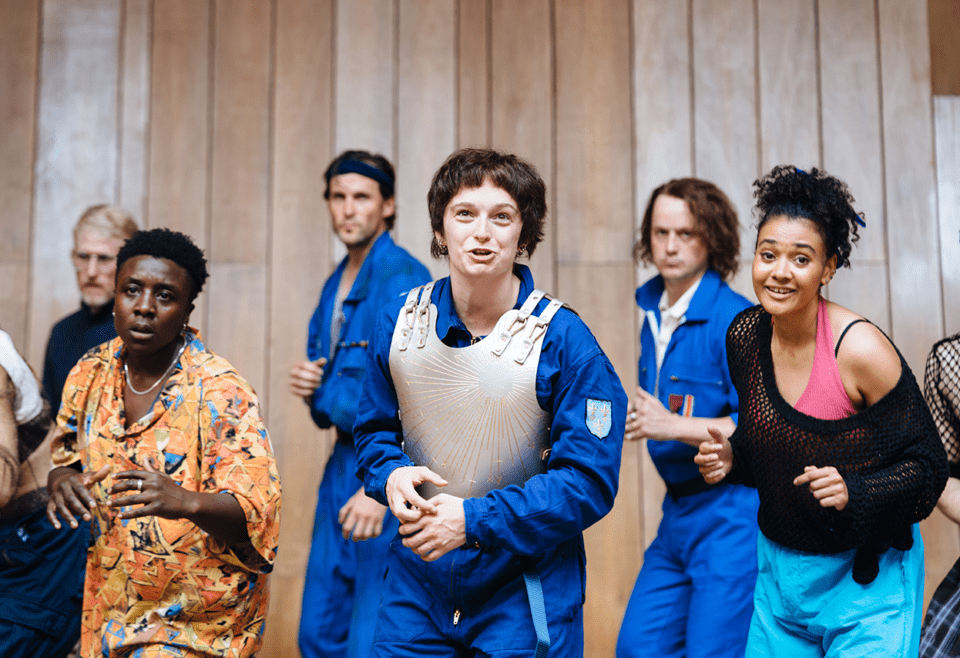
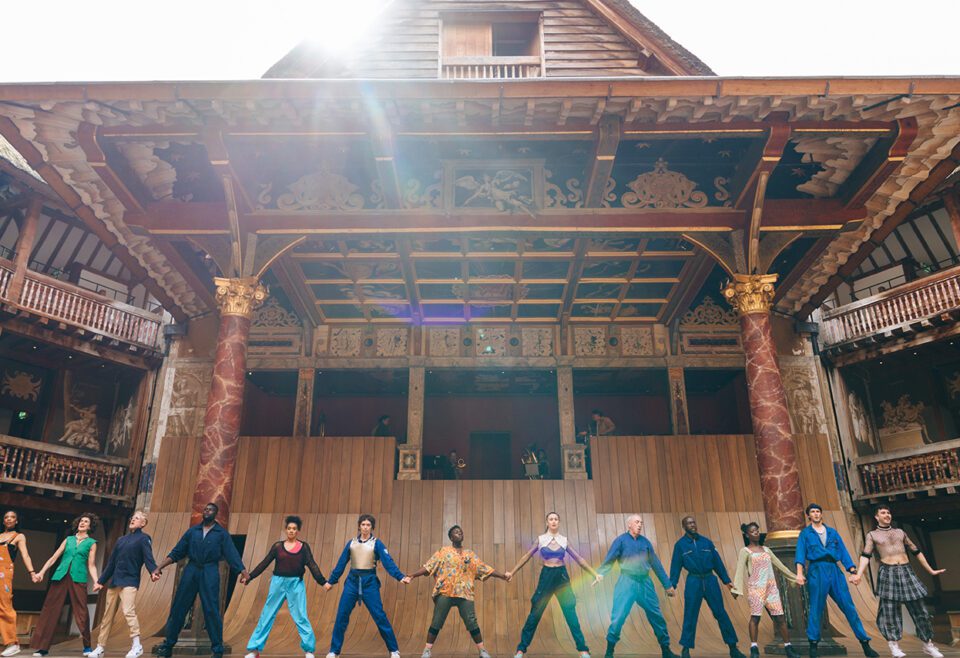
What did you know about Joan before getting the part?
I knew the basics, that there was a girl from France, who was a peasant girl, who heard the voices of God, and then led an army and then got burned at the stake for being a witch. I think Charlie’s an extraordinary writer. I love their work. They’re just so unbelievably imaginative, and wonderful and unapologetic, and it’s fantastic. And so articulate, they managed to articulate feelings about everything really, but particularly in terms of gender and queerness, that I thought I just felt, and no one else knew what that was. And then they’d managed to not only feel it too, but encapsulate it into this perfect little line of poetry, which is extraordinary. But I’d read some of the speeches that I had to prep for audition. And I just felt like I knew that person. I felt like I was that person and I knew who they were and that their energy and their drive and their power and their enthusiasm, and their constant like questioning and self awareness was something that I can relate to a lot and really fascinated me. So yeah, read the first couple of bits, had the first audition and then spent weeks in an absolute deep dive dark hole of the internet looking up every single thing about Joan and yeah, was really cross that people weren’t telling the story of the person that I had met in those words. And so just wanted to be a part of that.
What does it mean for you to bring the story of I, Joan to such an iconic place as The Globe?
I feel incredibly privileged to get to do it. This building is so important and so full of history and life and has hundreds of years of theatre and art behind it. To be able to tell a story like this, in a space like that, feels extraordinary. There’s nowhere near enough trans and non-binary stories in mainstream media, full stop, in any type of media full stop, and so to be able to tell a story that celebrates our identities and celebrates queerness and, indulges in the joy of it all on a stage like this. You couldn’t really make that up, it feels incredibly special.
As a non binary and queer person, what do you want the audience to take away, however they identify, from I, Joan?
I think I just want people to feel hopeful and to feel held and seen and maybe understood in a way that they hadn’t before and feel like they have the strength in themselves because they do, because everyone does have the strength in themselves to be who they are without apology. And even if people feel that for like a split second or maybe feel it like six weeks down the line or come out filled with it, I don’t really care, it’s just to be able to have shared in this incredibly surreal experience that each show feels like it is, sharing the space at the Globe that’s so open with people. And we all share in that love together and that excitement and that queer celebration that feels immense. And so I want people to just be able to feel that love and that they’re held by it and that they’re surrounded by it and that it’s always gonna be there for them.
Book tickets to see I, Joan, running until 22 October at the Globe theatre here.
